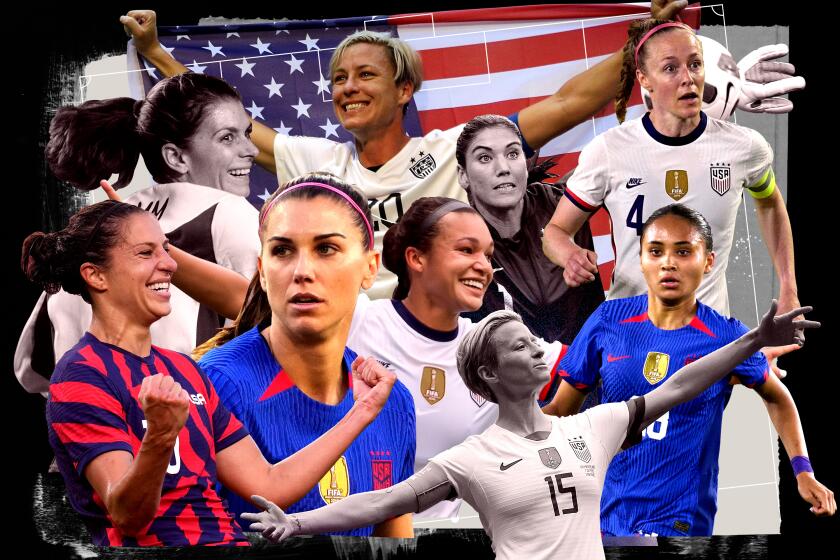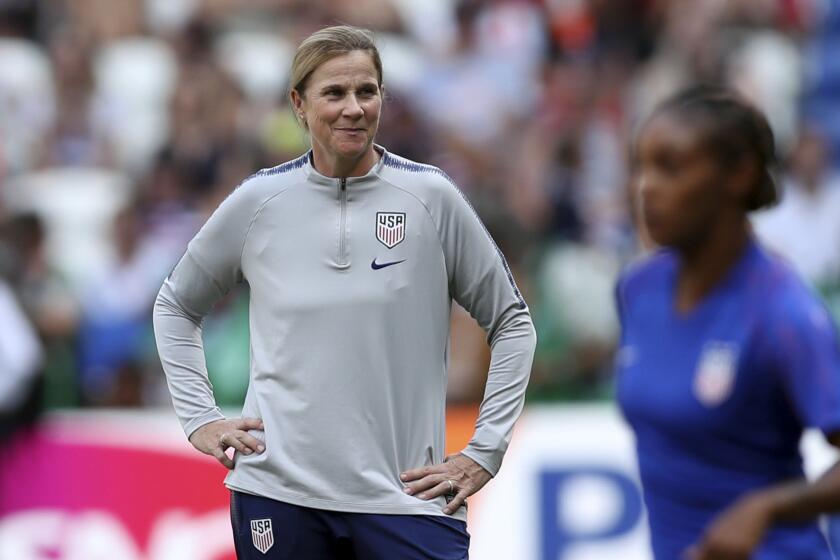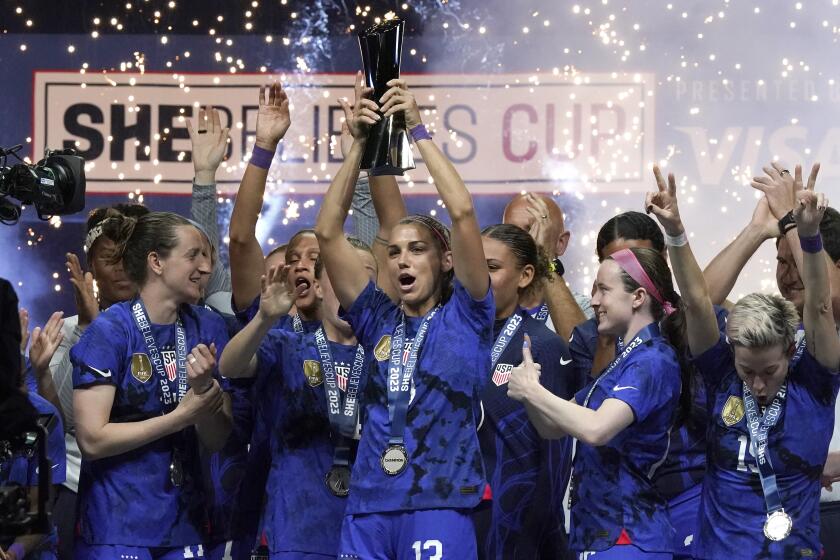American refs could elevate U.S. Soccer’s standing during the Women’s World Cup
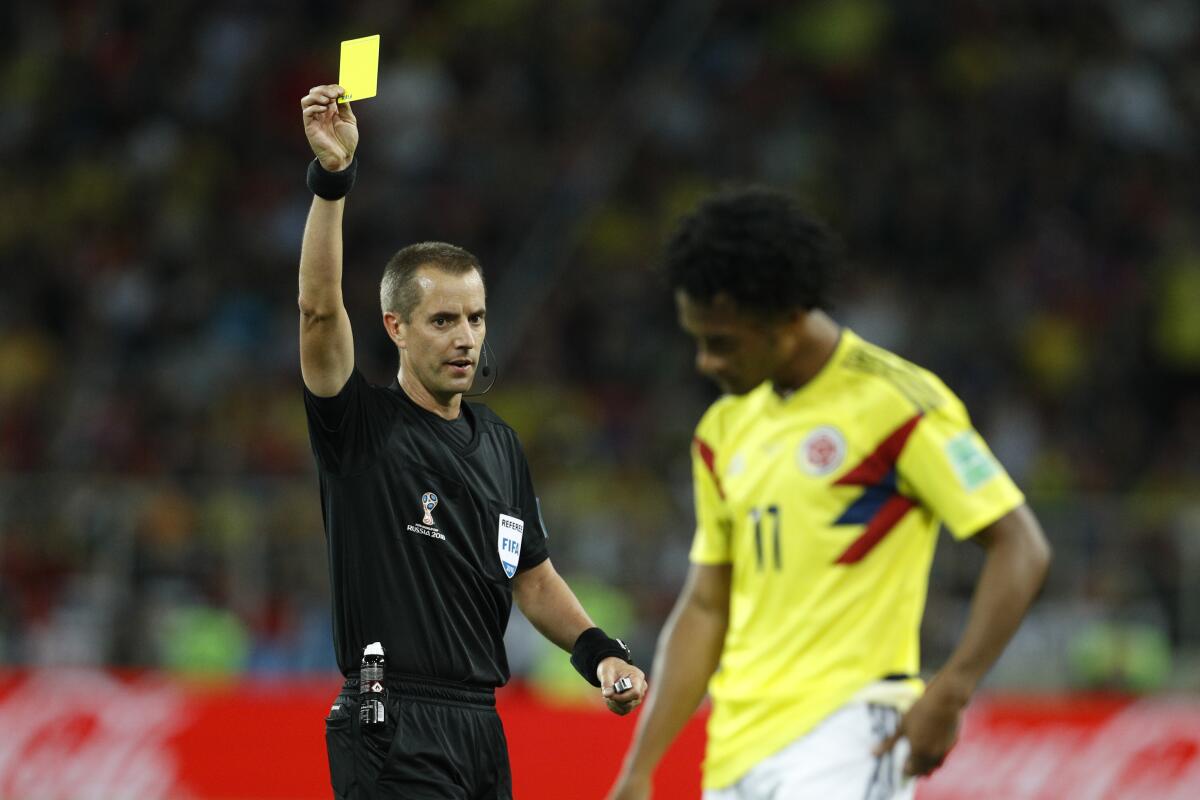
AUCKLAND, New Zealand — Tori Penso and Katja Koroleva may have more invested in the U.S. team’s performance at this summer’s Women’s World Cup than anyone not wearing a uniform.
As the only two center referees from the U.S. chosen to work the World Cup, how far they go will be determined by how far the national team goes in the tournament, which kicks off in Australia and New Zealand on July 20. If the U.S. reaches the final — as it has five times in the previous eight World Cups — the American officials will be barred from working that game. Even the semifinals could be a bridge too far.
“These rules aren’t in writing,” Penso said. “But there’s certainly a lot that goes into consideration when it comes to assignments. I wouldn’t be part of any game that would have impact on the U.S.”
Ahead of the 2023 Women’s World Cup in Australia and New Zealand, we review the USWNT’s all-time greats and its up-and-coming stars.
That’s why Kari Seitz, among the most decorated soccer officials of all-time, worked four Women’s World Cups and three Olympic tournaments, yet never did a final. That did little to stunt her career — she’s now FIFA head of officiating for women.
“If she can go to four World Cups and still manage to be as successful as she was, I don’t think you need a final to do it,” Penso said. “But certainly the U.S. program does limit where we end up at the end.”
Not so long ago, that might not have been an issue because no U.S. referee, other than Seitz, would likely have been considered for a World Cup final. That all changed last December in Qatar when four Americans were named to the officiating team for the championship game. Ismail Elfath was on the field as the fourth official, Kyle Atkins was the assistant video assistant referee and Kathryn Nesbitt and Corey Parker were reserve officials.
So while Argentina won the game, the U.S. won the night.
“We’ve made such big strides,” said Mark Geiger, a two-time World Cup official who now heads the Professional Referee Organization (PRO), which manages the officials for pro soccer in the U.S. and Canada. “We’ve seen this progression of officiating and it’s putting U.S. Soccer on the map in terms of refereeing and it’s raising the bar for all officials. We’re doing better and better on the world stage, getting more opportunities and now we’re in the conversation for games in the knockout phase.”
Penso is a part of that conversation even though she didn’t get her FIFA badge, making her ineligible to work international matches, until 2021. She didn’t need a badge to prove her competency; what she needed was an opportunity.
Penso was 10 years old when she started following her brothers to the soccer fields near their home in Florida. When her brothers started officiating games to earn a little pocket change, Penso decided to do that too, using that money to buy her first car. But by the time she finished college the sport seemed like a dead end; there was no women’s professional league and no full-time female referees.
Jill Ellis will have a rooting interest in the 2023 Women’s World Cup, but her impact on soccer stretches beyond her storied stint as USWNT coach.
So she took marketing jobs with Coca-Cola and Red Bull and got a master’s degree, all while officiating on the side in collegiate tournaments and later in the NWSL. She showed enough promise that in 2019 she was asked to join PRO’s development program and a year later she became the first woman in two decades to serve as the center referee in an MLS match.
But the turning point in her career came during the last Women’s World Cup in France, which Penso watched on television while cradling her infant daughter, Brinley, her third child, in her arms. If she wanted to break through as an official, she decided, she would have to quit her day job at an advertising agency and dedicate herself to soccer, just as her husband, Chris Penso, a former Ohio highway patrolman and an MLS referee since 2011, had done.
For both the move was made possible by PRO, which made officials full-time salaried employees rather than part-time workers like NFL referees, most of whom are paid by the game.
“Refereeing was kind of my side hustle,” said Tori Penso, who turned 37 earlier this month. “Now that’s completely flipped and I’m headed to the World Cup. Unbelievable.”
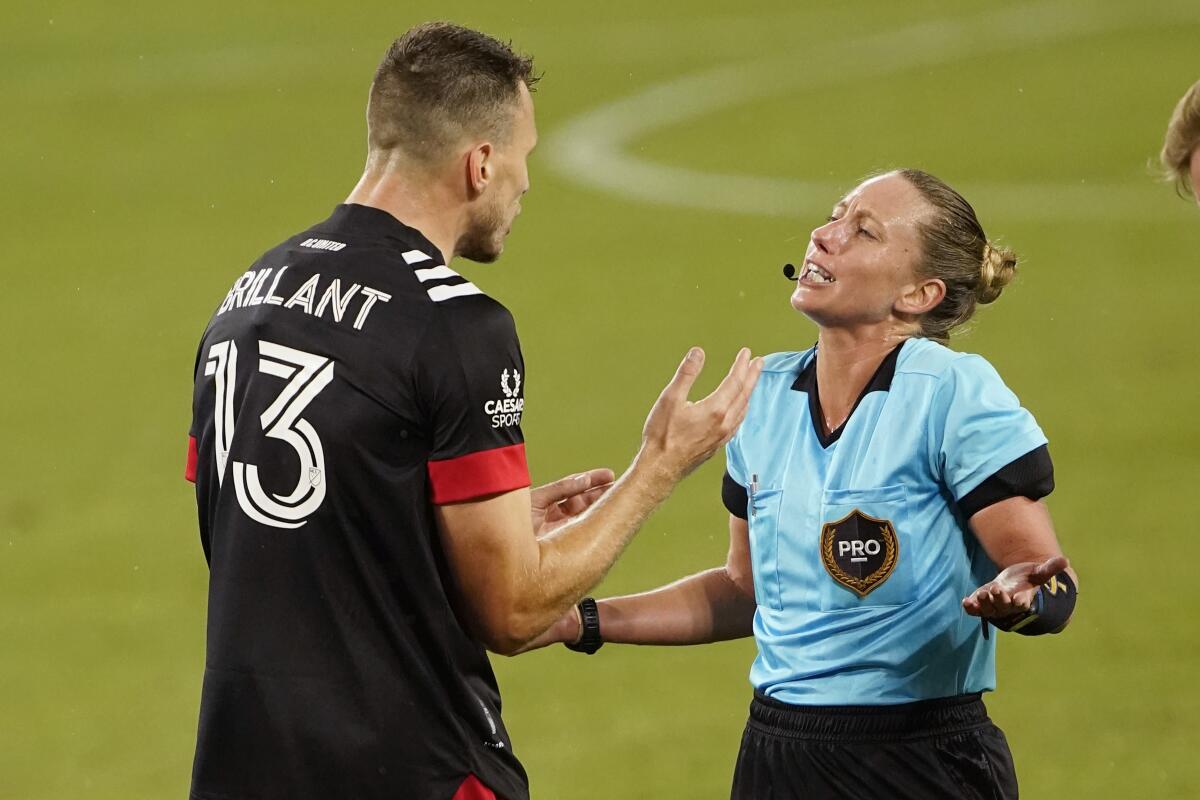
It’s been a rapid rise, one that has coincided not just with the ascent of U.S. referees, but also with the improvement in performance and opportunity for female officials. Earlier this season, for example, Penso was the center referee on a crew that included assistant referee Brooke Mayo and fourth official Felisha Mariscal, marking the first time three women have worked an MLS game together.
That’s not Penso’s only historic achievement. Perhaps more impressive is the fact she didn’t really dedicate herself to refereeing until after giving birth to three children. And with Mayo, Mariscal, Koroleva, Nesbitt and VAR referee Armando Villarreal joining her in New Zealand and Australia at the World Cup, Penso will make more history as one of a record six U.S. officials at the tournament.
“Every little kid dreams of one day making it on the field at the World Cup,” Penso said. “For me, I didn’t know it would ever be possible once I started to have a family. It wasn’t typical for officials to have a family and come back and be successful — or at least rise in the ranks that way.”
None of the six are guaranteed an assignment in the 64-game tournament. Each of the 107 match officials invited to the World Cup will be evaluated during a pre-tournament training camp and given games based on their performance. Additional assignments will be handed out on merit — though even the best officials might not make the final if their national team does as well.
Alex Morgan is more than just a soccer icon. The two-time World Cup winner has played a leading role on and off the field in helping women flourish.
“I don’t have control over that,” Penso said. “What I can control is every time we step on that pitch, doing a good job and serving the game well. How do we get better? How do we encourage, inspire and engage more women in this game in all capacities?
“When little girls see us out on that field, they believe anything is possible and that’s not just in soccer. It transcends sport, right?”

